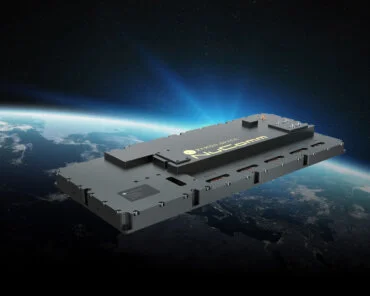
Israeli Tech Powers Next-Gen Internet Satellites: A Deep Dive into Space Computing
The future of internet connectivity is taking a giant leap forward, fueled by cutting-edge Israeli technology. Ramon.Space, an Israeli space-tech company, has secured a multi-million-dollar deal to supply digital computers for the OneWeb satellite communication network operated by European giant, Eutelsat. This partnership marks a significant advancement in space computing and promises to revolutionize how we access the internet from anywhere on Earth.
Ramon.Space's $70 Million Deal
The contract, estimated at $70 million, will see Ramon.Space providing digital computers for the next 70 satellites in the OneWeb constellation. According to Avi Shabtai, CEO of Ramon.Space, these computing systems will "enable digital data processing and enhance satellite performance," also being upgradeable during the operational life of the satellite. This adaptability is key to the company’s business model.

Currently, OneWeb operates a low Earth orbit (LEO) satellite network boasting over 540 satellites, second only to SpaceX’s Starlink. The integration of Ramon.Space's technology will allow OneWeb to transition to a software-defined network. This will enable in-orbit updates and greater flexibility in responding to evolving market demands.
Analog vs. Digital: A Paradigm Shift
OneWeb’s current constellation relies on analog channelizers, which sort and direct data traffic using hardware configured before launch. Ramon.Space’s onboard processors will digitize signal processing, allowing for greater compatibility with Eutelsat’s geostationary fleet and the upcoming IRIS², Europe’s sovereign multi-orbit broadband constellation.
Fabien Vernat, Eutelsat’s replenishment program manager for OneWeb, emphasized that this technology will help maintain existing services while paving the way for advanced, next-generation capabilities. This includes the introduction of AI-powered network management tools, though specific applications remain undisclosed.
The Broader Implications for Space Technology
This deal underscores a broader industry trend toward software-defined satellites, reflecting a need for greater in-orbit flexibility. Even SpaceX’s Starlink network utilizes software-defined radios to dynamically adjust coverage and manage capacity.
Beyond the OneWeb partnership, Ramon.Space is expanding its footprint, with facilities in Israel, the United States, and the United Kingdom. The company is involved in various projects, focusing on both communication and sensing/imaging satellites. As Avi Shabtai noted, their computers are designed for communication technologies, data processing, and increasingly, data storage – vital for space missions generating immense amounts of data.
Other Space News: Starship, Venus, and the Universe's End
This week in space also includes other major developments. SpaceX is preparing for the ninth test flight of its Starship system, aiming to achieve a ballistic trajectory without completing an orbit and showcasing experimental components like fuel transfer and dummy satellite deployment. Meanwhile, new research suggests tectonic activity on Venus, challenging previous assumptions about the planet's stability. Finally, theoretical physicists have revised their estimate of the universe's end, predicting it will occur sooner than previously thought due to Hawking radiation.
What Does This Mean for the Future?
The partnership between Ramon.Space and Eutelsat, along with other advancements in space exploration, signifies a pivotal moment in our ability to connect and understand the universe. As technology continues to evolve, what other groundbreaking innovations will emerge from the depths of space?
Share your thoughts and predictions in the comments below!